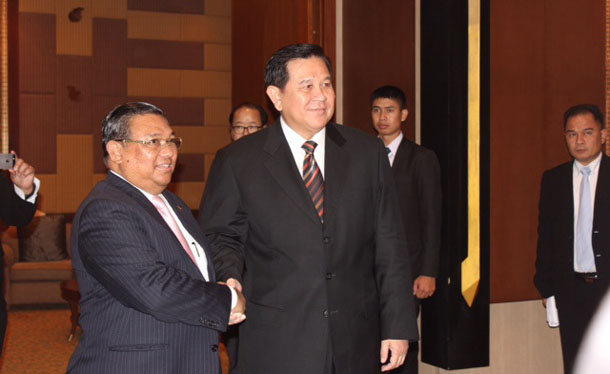CHIANG MAI, Thailand — A visa exemption agreement between Burma and Thailand will come into effect in the next two weeks after the foreign ministers of both countries signed off on the deal during a meeting Tuesday in northern Thailand.
Following the meeting with his Thai counterpart General Tanasak Patimapragorn in Chiang Mai, Burma’s foreign minister Wunna Maung Lwin told The Irrawaddy the exemption agreement would offer the citizens of each country the opportunity for quick and easy travel.
“[The agreement] will come into effect in the next 14 days. Ordinary passport holders of both countries entering via international airports will receive visa exemption,” he said.
The deal will apply to Thai and Burmese passport holders travelling by plane and entering either country for a period no longer than 14 days. There are currently seven airlines running services between the two countries.
Respective embassies will issue the necessary information, Wunna Maung Lwin said, but the process for air travellers is simple.
“Travellers… will [no longer] need to go to embassies to ask for a [tourist] visa,” he said.
According to Burma’s ambassador to Thailand Win Maung, the two ASEAN neighbors have similar numbers of tourists shuttling between either country.
Burma already has visa exemption agreements with six other ASEAN nations: Brunei, Cambodia, Indonesia, Laos, the Philippines and Vietnam.
At Tuesday’s meeting, the two officials turned their attention to other economic matters, including the long-stalled Dawei special economic zone that both governments are eager to implement with Japanese assistance.
Burma’s foreign minister also flagged the possibility of establishing other special economic zones, with Thailand’s assistance, in the near future.
“Thailand [is already] running other special economic zones,” Wunna Maung Lwin said. “We had initial talks on implementing special economic zones on Myanmar land as there are many potential areas for it, but there was no discussion on the exact location yet.”
The foreign minister said both sides were keen to implement these zones to facilitate trade and enhance mutual relations.

















